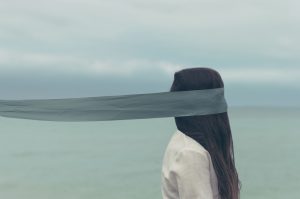I was diagnosed with a Non-Verbal Learning Disability when I was in my junior year of high school. Learning disabilities weren’t even on anyone’s radar, not my parents, not my teachers… not mine for sure. I was diagnosed with a chromosome disorder called Turner Syndrome and part of the followup testing for that was NVLD testing since it’s very common with those who have Turner Syndrome.
Suddenly everything made sense when we got confirmation of the learning disability. It made sense why I struggled so much in geometry and chemistry. It made sense why I had so many awkward social interactions as a child. Why I always wanted to draw but could never master the hand eye coordination to do so no matter how much I practiced. Why I talked to myself out loud when performing a task. Why it felt like I was blind despite having vision. It was also why I became an easy target for bullying in school.

Image from StockSnap.io
The unfortunate thing, being diagnosed so late, was that the school I attended didn’t feel the need to provide resources to me. With one year left, discussion of my individual education plan, or IEP, felt lack luster. They didn’t know how to move forward with accommodations or assistance. After all, I was a high functioning bright young lady. My reading comprehension scores and writing were given high marks. It was never seen as a huge detriment to my education and my personal mental health.
I soon went to college. I struggled. Instructions from professors were difficult to follow as they were almost always written down and sometimes not very clearly stated. I tried to receive help from the disability office, but the IEP I had in high school was difficult to obtain and didn’t provide much insight into the type of assistance I could get. The challenges I faced both academically and socially set me up for failure and I soon found myself in a two week stay at a hospital for a breakdown. Depression hit me hard.
I took a semester off school, and eventually transferred to another school in a new state where my parents had moved to so I could have some family support. I attempted to get Social Security Disability Income to help with financials while trying to finish my degree. Trying to hold down a part time job while going to school was slowly wearing me down. I began to see my grades slip. I remember going through an evaluation with a psychologist for my SSDI application and one of the tests they had me do was a connect the dots worksheet and I had to do it in a specific order – based on the points the evaluator asked for me to find and this was timed. I broke down in tears because I couldn’t do it. Connect the Dots activities are things children generally do with ease and here I was in my 20’s unable to find the dots requested because of my inability to locate them spatially on the paper. It was humiliating and probably the worst feeling I ever had.
The response from the Social Security Dept was that despite my depression and spatial issues, I could still find a job. And I did, and suffered through it – and my grades… they didn’t improve much.
If I had more assistance, if there were people who had understood what I was fighting through with NLVD, I feel like I could have done more with my college education. Luckily I’ve been successful in becoming a Sound Designer for Video Games.
NLVD still impacts my life at work and with my husband. Most of the time people don’t know that this is something I have and how it impacts me on a day to day basis. Even my husband forgets that this is a reality and there are little NVLD moments that bubble up in our conversations that can take him by surprise. For the most part, I do well. I can’t read someone’s face or body language most of the time, but I’ve learned to compensate – usually by listening to the tone of someone’s voice. Though sometimes I can’t distinguish anger from frustration. So, I often ask a lot of questions to clarify someone’s mood. I was fortunate to work with a psychologist who was able to help me cope with the challenges that NVLD gives me.
NVLD is so easily overlooked. When we think of learning disabilities, we often think of ADHD, ADD, or Dyslexia. With more awareness, I hope that children with NVLD get the resources they need sooner to be set up for success and not failure. That they can be happier and have access to professionals who can assess what their needs are and teach them coping skills before they’re faced with the repercussions of society’s lack of understanding.
Michelle
I was diagnosed with Turner Syndrome at age 16 which also commonly presents with NVLD. I am a sound designer for video games and use my position to advocate for accessibility in games for people with various disabilities.
Share your own story







